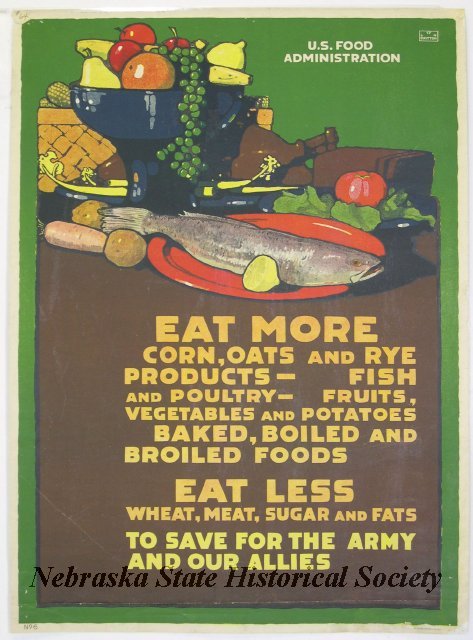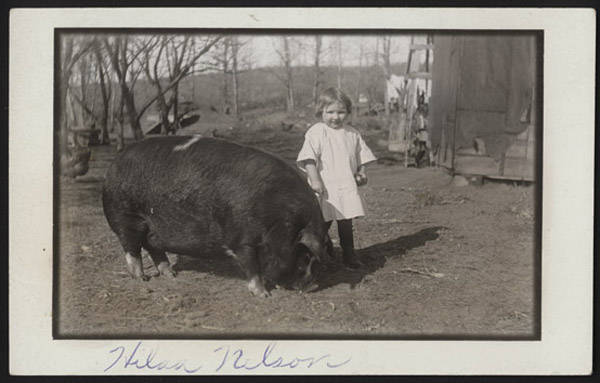 After the United States entered World War I in April of 1917, President Woodrow Wilson appointed Herbert Hoover head of the U.S. Food Administration. Hoover believed that food would win the war and established specific days to encourage people to avoid eating particular foods in order to save them for soldiers’ rations and use overseas: meatless Mondays, wheatless Wednesdays, and “when in doubt, eat potatoes.”
After the United States entered World War I in April of 1917, President Woodrow Wilson appointed Herbert Hoover head of the U.S. Food Administration. Hoover believed that food would win the war and established specific days to encourage people to avoid eating particular foods in order to save them for soldiers’ rations and use overseas: meatless Mondays, wheatless Wednesdays, and “when in doubt, eat potatoes.”
Hoover also instigated a national campaign for greater swine production. He said in 1917: “We need a ‘keep-a-pig’ movement in this country—and a properly cared for pig is no more unsanitary than a dog.” In fact, said Hoover: “Every pound of fat is as sure of service as every bullet, and every hog is of greater value to the winning of this war than a shell.” Even suburbanites, he asserted, could help by raising hogs on domestic garbage as the Germans were doing. As a result of this campaign many patriotic cities repealed ordinances which forbade the raising of pigs within city limits, thereby enabling many of their citizens to raise their own pork.

John Nelson’s photograph, dating from 1913 to 1915, depicted young Hilda Nelson with a pig named Polly. During World War I city dwellers were asked to raise pigs to increase the nation’s food supply. NSHS RG 3542.PH:020-01
The Lincoln Sunday Star on July 10, 1918, discussed the Hoover mandate on its society page, commenting that hogs wasted less and yielded more value to their owners than “other animals we think are so much nicer to have around,” and urged its readers with “a bit of available ground that is not being used for anything but flowers or nice green grass,” to “fence it off, build a sty or house or whatever seems to you to be the best thing to call it, and herein deposit Mr. Pig.”
Read more about efforts on the home front to help win World War I, the end of which is officially celebrated this November 11, in a Timeline Tuesday blog post on the Nebraska State Historical Society website.
— Patricia C. Gaster, Assistant Editor/Publications
(Updated 8/17/2023)




